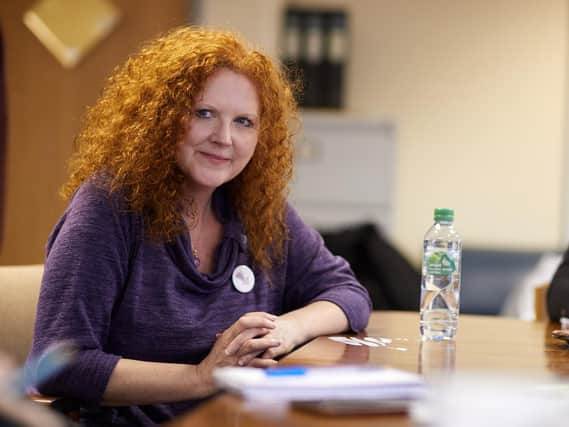19th century Yorkshire woman was deemed ‘insane’ and sent to West Riding Pauper Lunatic Asylum in Wakefield after requesting to be paid


Mary stitched samplers during her time at the former West Riding Pauper Lunatic Asylum, where she spent more than three decades of her life in the 19th century.
Sarah was intrigued to learn more about the context behind them - who was Mary and how did she come to end up as a patient at the institution for ‘the insane poor’?
Advertisement
Hide AdAdvertisement
Hide AdThe Forgotten Women of Wakefield Project, a group led by Sarah which is working to unearth stories of women from the city’s history and to celebrate their achievements in the form of blue plaques, began a community arts project earlier this year to explore mental health through stitching stories, providing an opportunity to learn more about Mary’s life and experiences.
What lead researcher Helga Fox and the team discovered is a tale Sarah describes as “tragic”.
In 1837, aged in her thirties, Doncaster-born Mary was committed to the asylum. She had caused a disturbance during a church service, demanding to be paid for music lessons she had delivered to the local preacher’s daughter.
According to the Forgotten Women researchers, in one of the surviving samplers, stitched by Mary prior to her time in the asylum, she writes: “I wish the vicar would submit to arbitration my claim against him for music lessons given to his daughter, regularly, twice a week, during the years 1834 and 1835.”
Advertisement
Hide AdAdvertisement
Hide Ad“It would appear [he] had refused to pay Mary for her services,” Sarah says. “And so denied any opportunity for negotiation on the matter, she called him out in public - which of course made her dangerous and insane.”
“Speaking out, getting excited, challenging male authority and refusing to conform would quickly be used as evidence of insanity,” she adds.”These kinds of actions were seen as ‘irrational’.”
Mary stayed at the institution until she was transferred to an asylum in South Yorkshire in 1873.
During her time in the Wakefield facility, researchers say her mental and physical health deteriorated and, having studied her medical notes, say she underwent years of ‘treatments’ including electric shocks to her pelvis.
Advertisement
Hide AdAdvertisement
Hide AdShe took to embroidering her story and experiences as part of an early form of art therapy offered by the asylum.
“With no power of her own, abandoned by her family and living in a society that defined women as being hysterical and locking them up for merely challenging the male voice, there are many aspects of Mary’s story that resonate with women today,” Sarah says.
“It’s important to understand...how women still do not feel listened to, how they are dismissed and belittled and how the actions of gaslighting, a form of emotional abuse and prevalent in today’s society, is just as damaging today as it was in Victorian Britain.
“Mary’s story is a reminder that our mental health is fragile and made more so by a lack of understanding of how we work, think, feel and create. Out of all our Forgotten Women, Mary’s story continues to make my heart hurt.”
Advertisement
Hide AdAdvertisement
Hide AdA blue plaque for Mary, who died in 1878, is expected to be unveiled on November 7 at Wakefield Library, along with another for Lady Catherine Milnes Gaskell, a “champion of social justice”, who spent much of her life supporting the health, education and well being of Wakefield’s poorest communities.
There will be talks, short films and an exhibition about both of the women to support the British Library’s Unfinished Business exhibition, exploring how feminist activism in the UK today has its roots in the complex history of women’s rights.
Support The Yorkshire Post and become a subscriber today.
Your subscription will help us to continue to bring quality news to the people of Yorkshire. In return, you'll see fewer ads on site, get free access to our app and receive exclusive members-only offers.
So, please - if you can - pay for our work. Just £5 per month is the starting point. If you think that which we are trying to achieve is worth more, you can pay us what you think we are worth. By doing so, you will be investing in something that is becoming increasingly rare. Independent journalism that cares less about right and left and more about right and wrong. Journalism you can trust.
Thank you
James Mitchinson